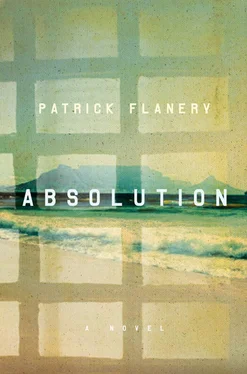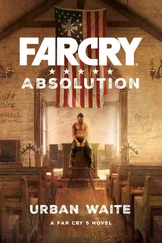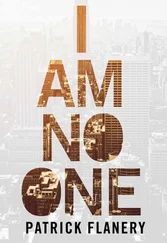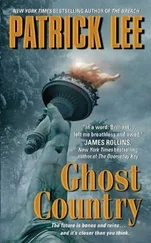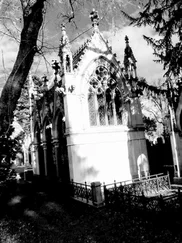‘When it became known that I was going to write your biography, lots of people sent me letters offering anecdotes about you. Most of them I ignored, because most were, frankly, libellous, never backed up with any evidence. Someone, however, and I don’t know who, because he or she acted anonymously, sent me a photocopy of a document,’ I say, handing her a folder. ‘I’ve been to the State Archives to look for the original, but files from the period have been lost. I was hoping you might be able to tell me if this is genuine or not.’
‘I think I know what I am going to find inside.’ She opens the green flaps and removes a slim stack of photocopied pages, stapled together, bearing her initial and surname at the top of the first page. There’s nothing to prove she actually wrote it; some enemy might have wanted to put her name to the advisory report that argues in the most legalistic style on what grounds a novel, summarized and analyzed in the pages therein, might be banned under the country’s old publication control laws. She skims the pages and sets the report to one side.
‘It’s genuine,’ she says, the corners of her mouth turning up. ‘That’s my handwriting, my signature, my words throughout. You want me to offer some kind of defence for my actions, but I won’t. I will say only that I did it as a challenge to the system, believing I might be able to subvert it from within, or prove that there was nothing high-minded about its aims. Then one day, they simply stopped using me, and no more books were sent in my direction; notably, it happened after I wrote this very report — coincidence or not, I don’t know, nor do I care. If you were to read all the reports I wrote, of which there were perhaps twenty over a period of two years in the early 1970s, this one, the one you have, is the only one that advocated banning, and I argued for banning on strictly legal grounds, as you can see. Whoever kept the report knew what they were about, or at least they thought they did. I assumed I had the only surviving copy. The author was totally unknown, and the book, Cape Town Nights , was quite obviously written with the express purpose of challenging the publication control laws; it was obscene, blasphemous, and openly ridiculed the government and the police, all of which were forbidden. The small press that risked publishing it made a habit of these sorts of crude attempts at challenging the system. It had a certain futile nobility. In every other case, the books upon which I reported were ultimately made available to the public without change or emendation, as far as I know.’
‘And the author of the book you reported against?’
She smiles and shakes her head. ‘You already know her.’ Having been unable to trace the author of the banned novel, which was embargoed and nearly all the copies apparently destroyed, never to be republished, never published abroad, I’d assumed the man, for the author was a man, Charles Holz, was dead.
‘You banned your own book?’
‘I thought perhaps you would be sympathetic, since you are, like I was, an intellectual — or a kind of intellectual — trying to survive in a time of madness.’ She smiles for a moment only and then purses her lips together, sticking them out, as if to kiss. ‘What will you do now? Will you tell the world that the woman who argues so fiercely against censorship collaborated with the censors, became one of them, and worked against herself? Do, if you wish. I won’t stop you. I cannot. It will change no one’s mind. If you present it fairly, as I know you will, being yourself of a highly legalistic frame of mind, then those who hate me will go on hating me, and those who do not hate me will merely think this new information adds to my complexity. It is a shame that this is all you could come up with, this impotent little squib. I thought you had caught the real scent. I was sure you knew,’ she says.
‘Knew what?’ I ask, feeling my heart race, wondering if she is referring to our own buried connection — if it’s possible she remembers me from decades ago — or something else altogether, a secret about herself I can’t begin to imagine.
She shakes her head. ‘You asked the wrong questions. How do you think you can write my life? You have nothing but a skeleton of facts, which you will flesh out with your own conjectures. I have shown you nothing. Because you now think that you know why, at one period in my life, I might have violated my own elaborate ethics, you will paint a pad of muscle and skin, and say, “That is who she is, there, as I’ve drawn her.” ’
She takes the photocopied report and places it back in the green folder. ‘You are caught under that green bushel, lighting up what? Nothing. A dark empty space. My greatest secrets are left unillumined. You cannot see me from underneath that bushel. I was ready to show you demons. But that is work you have left for me to do, if I should choose to do it.’
This is how she appears to me, and these are her words, as I recorded and transcribed them, but when I reread them I find I’ve lost who she is: that system of continuous small explosions, contained in a tall pouch of skin.
Since it was going to be cool over the weekend, Marie suggested they go for a drive.
‘To the beach?’ Clare asked, and then thought better of it. ‘No, not to the beach. There will be a wind.’
‘To Stellenbosch, then?’ Marie said.
‘Yes, all right.’
‘And perhaps you would like to stop at the cemetery, to see your sister’s grave. We haven’t been there in such a long time.’
‘Yes, very well. Perhaps it’s time I paid another visit to check she hasn’t unearthed herself.’
Clare’s parents were not so easily visited; they had both been cremated, their ashes scattered in a high wind at the tip of the world, falling in eddies around her head and into the air above the waves where two oceans meet.
Marie drove them from the house and along the N2, turning off at Baden Powell Drive, going through Stellenbosch, and then up into the vineyard-covered slopes and around into Paarl.
The cemetery felt unnaturally white, headstones of white marble surrounded by whitewashed walls, the graves tended by fat white men with burned skin, replacing the faded white lilies on Nora and Stephan’s graves with fresh ones every day, at private expense. The wild fig was still there, outside the walls, covered in vines, and the language monument was now visible beyond the tree. Nora’s grave was in a place of honour next to her husband’s, adjacent to an eternal flame, which, it was rumoured, had lately been allowed to go out at night. But on that day it was burning, blue-gold under the leaden clouds, stark against the white crosses that faded into invisibility against the white wall that surrounded the acre of dead, the burial farm.
It was a space of such whiteness that Clare, in black for fashion rather than respect, looked like an intruder. And then she noticed that there was another intruder as well, black and small and round, nestled against the base of the monument that marked Nora’s grave. Clare knew what it was before she had seen it clearly; she knew at the first dull metal glint of black, half-revealed, itself half-concealing the eternal flame. It was her father’s black tin box. She felt cold in the heat, and put her hand on Marie’s white-sleeved arm. When they reached the grave, Clare leaned over and took up the box in her hands.
It was impossible; it was too horrible to find it there. It was somehow exactly what she had been expecting. She opened the lid. The wig was there, and she imagined for a fractional moment that her father’s head was there as well, tipped up, staring at her, though this was impossible, for his head was in ash, scattered to the sky. Clare thought she heard herself scream. She knew that they knew. She knew who they were — Stephan’s family, his brothers, his cousins, nephews and nieces for all she knew. It was clear what the wig meant, clear to her that her own complicity was known, that someone wished to remind her that she was not above the law, and not above the claims of history.
Читать дальше
